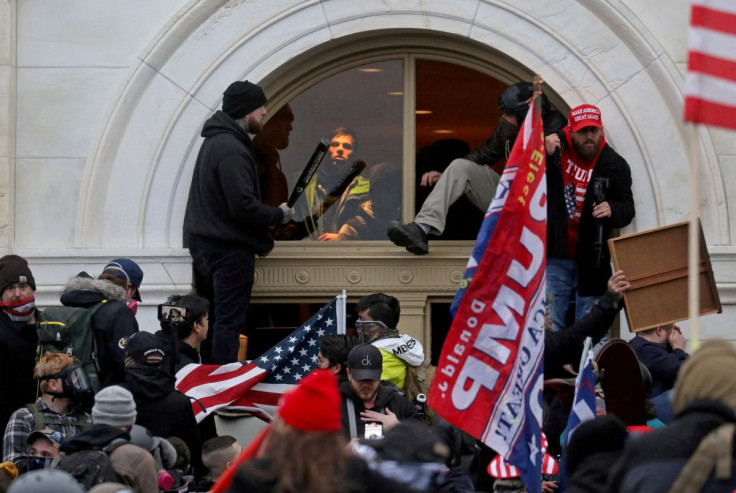Jury To Decide Fate Of U.S. Capitol Rioter As Bellwether Trial Ends

U.S. federal prosecutors on Monday are expected to make closing arguments in the first jury trial of someone charged with joining in the Jan. 6, 2021 assault on the Capitol by Donald Trump's supporters.
Justice Department lawyers will wrap up their case against Guy Reffitt of Texas, the first of some 750 people charged with joining in the riot to face trial in Washington.
The charges against Reffitt include carrying a semi-automatic handgun while on Capitol grounds and obstructing justice by threatening his children with harm if they reported him to authorities.
Some 200 defendants have already pleaded guilty to charges relating to the attack, which sent lawmakers running for their lives. Reffitt's trial is an important test case as the U.S. Justice Department attempts to secure convictions from the hundreds of defendants who have not taken plea deals.
They face charges ranging from unlawful picketing to seditious conspiracy, with which 11 people affiliated with the right-wing Oath Keepers were charged in January.
A guilty verdict for Reffitt could motivate defendants to accept plea deals offered by prosecutors. A verdict in Reffitt's favor could motivate the hundreds of defendants who have not taken plea deals to roll the dice on a trial.
Reffitt's estranged son Jackson, now 19, turned him into the FBI and testified against him last week.
If convicted of the most serious charges against him, Reffitt faces a maximum sentence of 20 years in prison, though defendants rarely receive maximum penalties.
Thousands of people stormed the Capitol on Jan. 6, 2021, after a fiery speech in which Trump falsely claimed his election defeat was the result of widespread fraud, an assertion rejected by multiple courts, state election officials and members of his own administration.
© Copyright Thomson Reuters {{Year}}. All rights reserved.





















